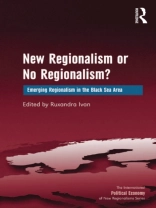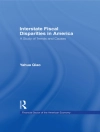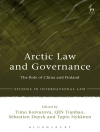The nation states in the Black Sea area have initiated many co-operative policies but the area also sees numerous tensions between neighboring states. The conflict-co-operation paradox, along with ethnic fragmentation and shared culture, are two of the most salient features of the Black Sea Area. These paradoxes are not the only force in the evolution of the region though. There are also issues such as ethnic and national identity, the failure of democratization, energy and resources, as well as the influence of other powers such as Russia, the EU and the USA. The key questions asked by the authors in this book are: to what extent is there an emerging regionalism in the Black Sea area? Is the Black Sea a region? What are the common interests shared by the former USSR states, the three EU member states neighboring the Black Sea – Bulgaria, Greece and Romania, and a NATO country – Turkey? Are the fault-lines dividing them more pervasive than the incentives for cooperation? Can we speak of a shared identity? The first part of the book places the Black Sea problematique in a wider historical and spatial context. The authors then take a closer look at the region and examine further the structure of the Black Sea area. They offer a perspective on smaller actors with great ambitions, such as Azerbaijan and Romania, and go on to make a comparison between the emerging regionalism in the Black Sea area and regionalisms in other parts of the world.
Ruxandra Ivan
New Regionalism or No Regionalism? [PDF ebook]
Emerging Regionalism in the Black Sea Area
New Regionalism or No Regionalism? [PDF ebook]
Emerging Regionalism in the Black Sea Area
购买此电子书可免费获赠一本!
格式 PDF ● 网页 256 ● ISBN 9781317088127 ● 编辑 Ruxandra Ivan ● 出版者 Taylor and Francis ● 发布时间 2016 ● 下载 3 时 ● 货币 EUR ● ID 4889468 ● 复制保护 Adobe DRM
需要具备DRM功能的电子书阅读器












